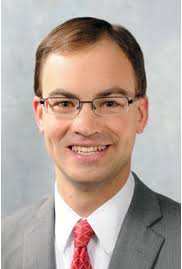Massachusetts state senators form millennial caucus to push young adults’ agenda
October 25, 2017
The MA Senate ‘Millennial’ task force released a report Wednesday identifying the top issues for millennials. They made a potpourri of policy suggestions on topics such as affordable housing, transportation and student debt.

A group of state senators in their 30s are forming a “millennial caucus” to promote a legislative agenda that helps young people in Massachusetts.
Sen. Eric Lesser, a Longmeadow Democrat who is 32, said a task force he co-chaired with Sen. Ryan Fattman, R-Webster, 33, found millennials are disconnected from government.
“The sense of alienation and frustration with the political system is real,” Lesser said. “We need to embrace and recognize that, and as leaders be responsive to it.”
The Senate task force released a report Wednesday identifying the top issues for millennials. They made a potpourri of policy suggestions on topics such as affordable housing, transportation and student debt.
Asked what their legislative priorities would be for this session, the group declined to pick. Senate President Stan Rosenberg, D-Amherst, said he was not familiar enough with the recommendations to pick the top ones. But he said, “We will take the report seriously, and we will continue to move as much legislation through our process as possible.”
Rosenberg said there is a lot of momentum for improving civics education. Lesser said numerous bills have been introduced dealing with student debt.
Sen. Joseph Boncore, D-Winthrop, 35, said a pending bond bill that would put more money into low-income housing development could help the affordable housing crunch.
In a press conference releasing the report, the state senators stressed that the problems facing young adults are different than the problems facing older adults.
“Our parents’ problems are not our problems,” Boncore said, adding, “Our parents’ solutions aren’t our solutions.” For example, Boncore said millennials deal with the state’s crumbling transportation infrastructure by looking toward ride-sharing services and self-driving cars.
Boncore suggested that new technology like electric vehicles means the state can no longer rely on the gas tax as a consistent source of revenue but must look to new taxes, such as taxes on services or on income over $1 million, as is being proposed by 2018 a ballot question.
Several of the senators noted that young people are having a harder time staying in Massachusetts after school, facing huge amounts of student debt, housing in eastern Massachusetts that is unaffordable and a lack of transportation further west in the state.
“Students are graduating from institutions with a mortgage of debt, then they go into a housing market that’s completely unaffordable,” said Sen. Patrick O’Connor, R-Weymouth. “Something is wrong there.”
Although a lot of housing policy is decided on a local level, the senators noted that some state policies like zoning reform can make a difference.
Massachusetts state senators form millennial caucus to push young adults’ agenda
A group of state senators in their 30s are forming a “millennial caucus” to promote a legislative agenda that helps young people in Massachusetts. Sen. Eric Lesser, a Longmeadow Democrat who is 32, said a task force he co-chaired with Sen. Ryan Fattman, R-Webster, 33, found millennials are disconnected from government.






Join 1,900+ BIPARTISAN LEADERS NATIONWIDE
Be a part of a network of lawmakers committed to governing effectively, passing more representative public policy, and increasing public trust in democracy.